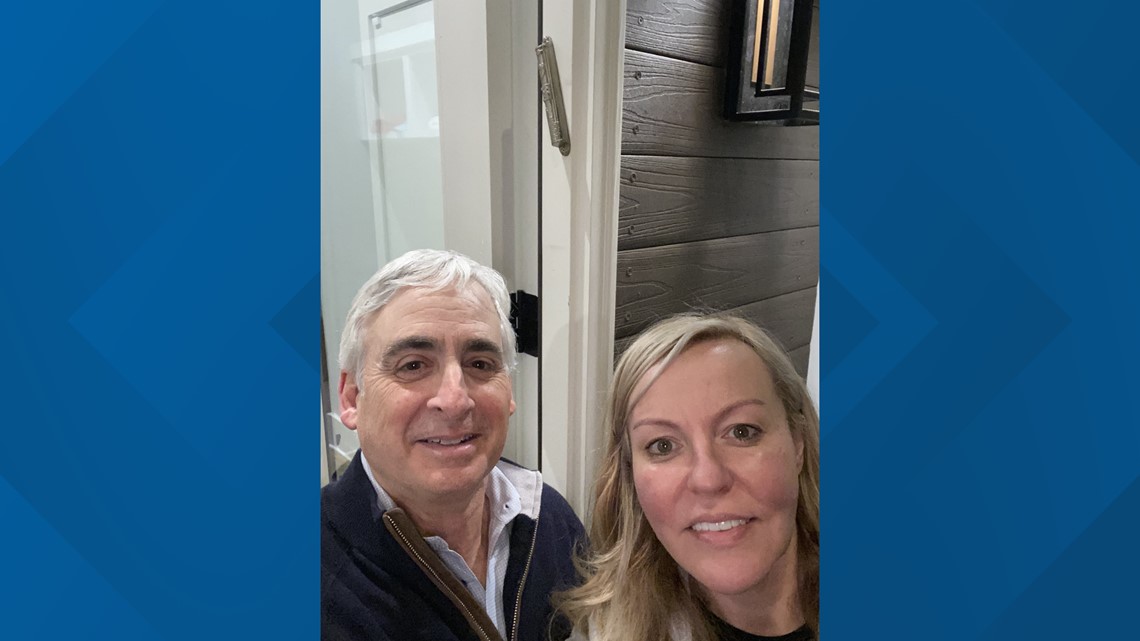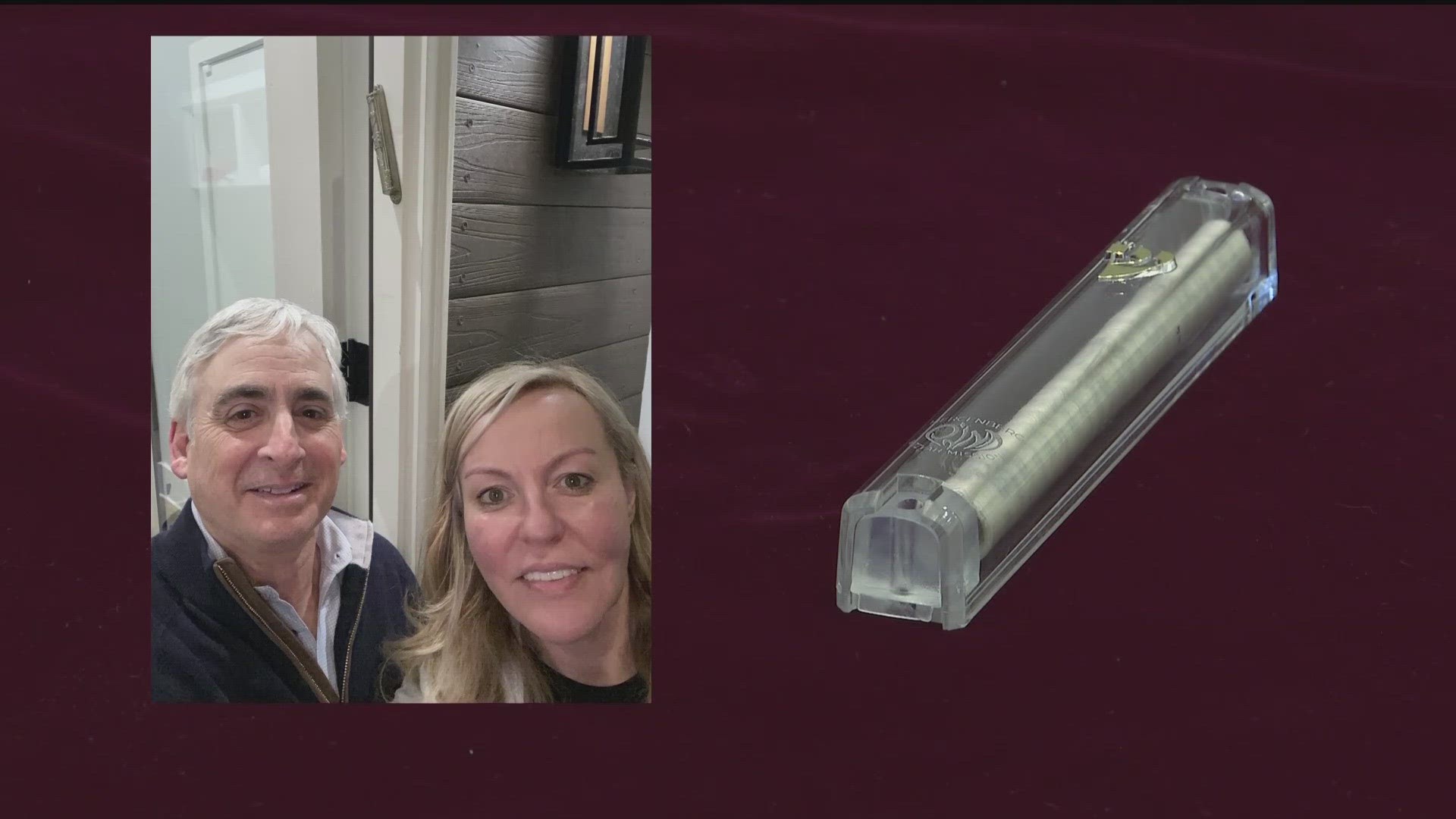COBB COUNTY, Ga. — The Cobb County synagogue where Nazi protesters gathered outside in June is responding to recent acts of antisemitism.
They’re doing this by handing out free mezuzahs, which serve as an important symbol for the Jewish community.
Rabbi Ephraim Silverman, whose grandmother survived the holocaust, said that protest was meant to divide the community, but instead, has done the opposite.
"These are letters that we received, cards, from hundreds of individuals out there," he said while showing a basket full of envelopes. "This has made us feel more loved and more respected and part of the community than anything else."
The support continues to flood in. On Wednesday night, his synagogue received a donation of 100 mezuzahs to hand out to his congregation and put on their doors for free. In less than 24 hours, more than 30 have been distributed.
"It brings protection. It brings blessing," he explained. "We’re thankful to the Hercenberg family that have the Hercenberg Mitzvah Mission, which helped fund this project."
Each mezuzah, he said, cost about $100, and with 100 free ones, it amounts to a $10,000 donation.
Mitchell Kopelman already put his up, and is helping install his partners' later this week.
"She came to the U.S. in the early 90's when Russia opened up the ability for Jewish people to leave because they were not allowed to leave before that or practiced Judaism openly," Kopelman said. "So she didn't grow up with having a mezuzah on her house because she had to hide her Judaism. A lot of people in the south have had felt anti-Semitism over the years. They were afraid to have mezuzahs on their houses. To me, we're commanded to do it.”


As described by Chabad.org, the mezuzah is "a small parchment scroll upon which the Hebrew words of the Shema are handwritten by a scribe. Mezuzah scrolls are rolled up and affixed to the doorposts of Jewish homes, designating the home as Jewish and reminding those who live there of their connection to God and their heritage."
David Asarnow, who witnessed the Nazi protest and whose son is living in Israel, said it helps him feel proud of his religion, and recognize the work that still needs to be done, one doorframe at a time.
"When I first witnessed (the protest), the feeling was being upset... it was anger. Then when you realized they weren’t people from the local community, they are trying to disrupt and turn people against each other. So what’s the best response to hate? It's light," he said.
The mezuzahs, bringing pride and unity, while the anti-Semitic group tried to fight just that.
“If their intention was to make the Jewish people feel more proud and feel more engaged and feel better about their place in society and community, they have far surpassed their goal," Rabbi Silverman said.

